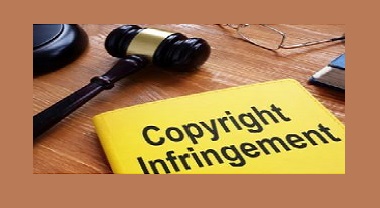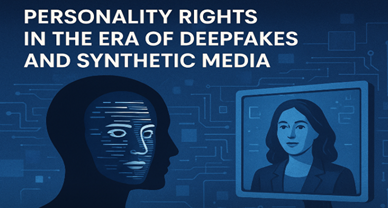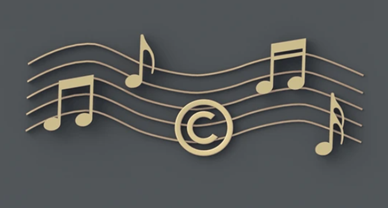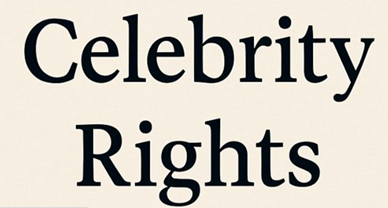Copyright Violations Being Caused by Online Streaming
Introduction
When someone violates a creator’s exclusive rights to a piece of work, they are engaging in copyright infringement. All forms of dissemination (selling ,performing, broadcasting, etc.), modification, and other forms of copying of the work fall under this category. Music as well as the movie industry are two common industries that face copyright issues on a day to day basis. Contingent liabilities, or funds saved in case of a potential litigation, may result from infringement instances.
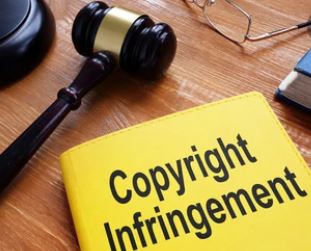
The year 2020 brought a big change for the music and movie industries as the forced lockdown to control the pandemic issue made them launch their movies and music albums on the online platform, which also brought up the problem of copyright infringement as now it was easy to record and sell the movies online.
To be able to profit from their efforts, entrepreneurial ventures or people that create their own original works and publish them register themselves. Through a licensing agreement, they can give consent for other parties to utilize their creations. Over the years, there have been many different copyright infringement difficulties, but as technology has advanced quickly, the Copyright Department has had to deal with an increasing variety of problems in an effort to stay up with innovation. A product or piece of information may be easily copied thanks to modern technology, and some businesses get a significant portion of their income from copying what other businesses have produced. It’s now simpler than ever to reproduce a picture thanks to advancements in digital imaging. The development of digital imaging has made picture duplication simpler than ever. Photographers, animators, and visual artists have recently brought the Copyright Office’s attention to a number of copyright-related concerns. For those who own copyrights, the increasing significance of the Internet is bringing forth new challenges. Companies all over the globe may now access copyrighted materials more readily than ever, and the development of new technologies has surpassed the regulatory environment’s capacity to guarantee whether copyrights apply to fresh formats.
The Indian Government enacted The Copyright Act of 1957 to protect the rights of artists from getting copied or pirated. The Copyright Act of 1957, protects indegenious artistic, musical, literary and dramatic works as well as original sounds recording and cinematograph films from unauthorised use. In contrast to patents, copyright safeguards expressions rather than ideas. A concept is not protected by copyright.
Analysis
In 2020, numerous businesses encountered a copyright issue with their online publications of art, music, movies, or web series. Even before the information was published on the primary website, it was readily leaked on platforms like WhatsApp, Telegram, Discord, etc. The content providers lost their audience, which also cost them money. During the Lockdown, copyright concerns had to be dealt with by the educational institution as well. In the judgement given by The Hon’ble Delhi High Court in the case of The chancellor masters and scholars of university of Oxford & Ors. V. Rameshwari photocopy services & ors. emphasized the fair use and dealing of copyrighted matters under section 52(1)(a) of the Act.
In the case of Tips Industries Ltd. v. Wynk Music Ltd. The high Court of Bombay rules that Internet broadcasting organizations cannot enjoy the benefits of a Statutory License under Section 31-D. The Tips Industries being the petitioner was given interim Relief on the basis that the defendant company was neither a radio nor a television. In addition to allowing the use of a Statutory License under Section 31-D without a fixed royalty, the defendant’s interpretation of Section 31D and the governing regulations also absolves the service provider of any obligation to request that the Appellate Board set the royalty, which is against the spirit of the applicable legislation.
It is obvious that inefficient copyright rules pose serious problems for streaming services. Although the internet streaming market has developed over the years, the artists and songwriters still don’t receive their fair share of the earnings since the regulations controlling the music industry are still in place. It is unclear whose exclusive rights interactive streaming violates because India’s present copyright legislation neither defines it nor specifies which it does, making it difficult to determine the appropriate compensation. Additionally, there are no restrictions defining the licences that on-demand streaming providers must get. According to businesses, digital downloads solely make use of mechanical rights. Conversely, only public performance permits are needed for individualised non-interactive online radio services.
The Copyright Act, which was implemented to facilitate information access and the expansion of the Internet, is another drawback. Regrettably, the law did not advance as quickly as the Web. Online service providers have been awarded a safe harbour, exempting them from financial responsibility in some cases of infringement, as there are no clear regulations regarding the accountability for online copyright infringement in India. This implies that a provider cannot be held accountable if it is uninformed that users are caching, storing, sending, or linking to copyright content on its website.
Therefore, the internet service providers are now able to make money off of unlawful publications because India does not have a legislation addressing online copyright infringement liability. Only after a copyright holder has filed a complaint is the provider allowed to make an ignorant claim and delete the content. However, content removed are frequently posted again rapidly, widening the disparity.
Conclusion
India is one of the countries most impacted by COVID-19, therefore copyright issues cannot now take precedence. The pandemic has increased the need for copyright law that is better prepared for unforeseen situations and more conscious of digitalization. The overnight transition to streaming music, movies, and educational content online illustrates the necessity for changes to the Indian Copyright Act. The law should concentrate on punishing those who disclose and share data without having a licensing agreement with the corporate entity on other platforms. The Tips v. The Wynk case demonstrated that infringement occurs on both small and large platforms, and that rules must be changed to prevent copying and selling of original works by legitimate creators as well as the distribution of revenues to those who violate their rights. As a result, the lawmakers must take changing circumstances into account and add measures controlling statutory licence systems that cover internet streaming services. Inability to do so might have a significant impact on copyright holders’ rights in the internet sector.
Author: Sanya Barman, 5th year B.L.S.L.L.B student hailing from Mumbai University, in case of any queries please contact/write back to us at support@ipandlegalfilings.com or IP & Legal Filing.
